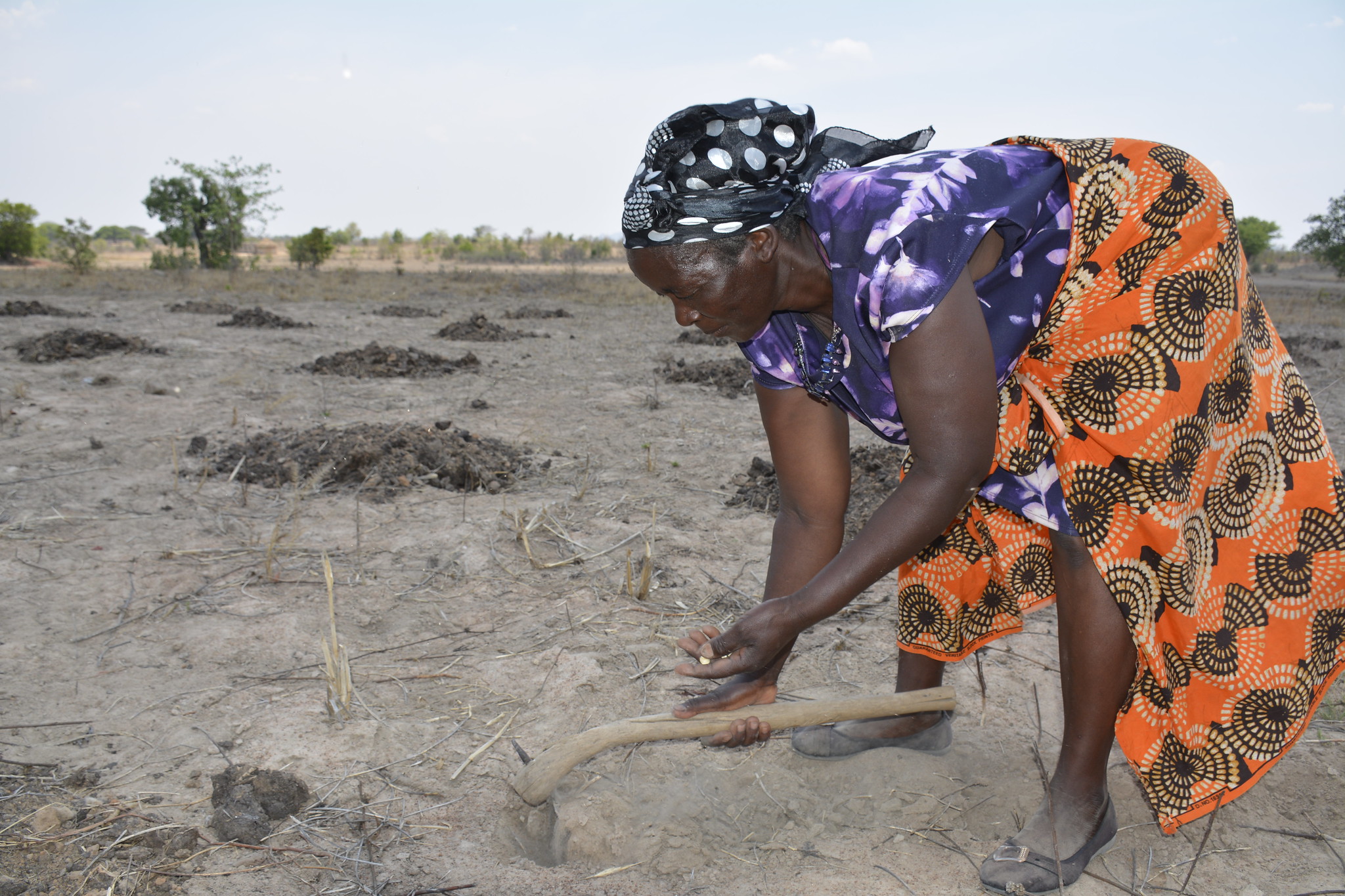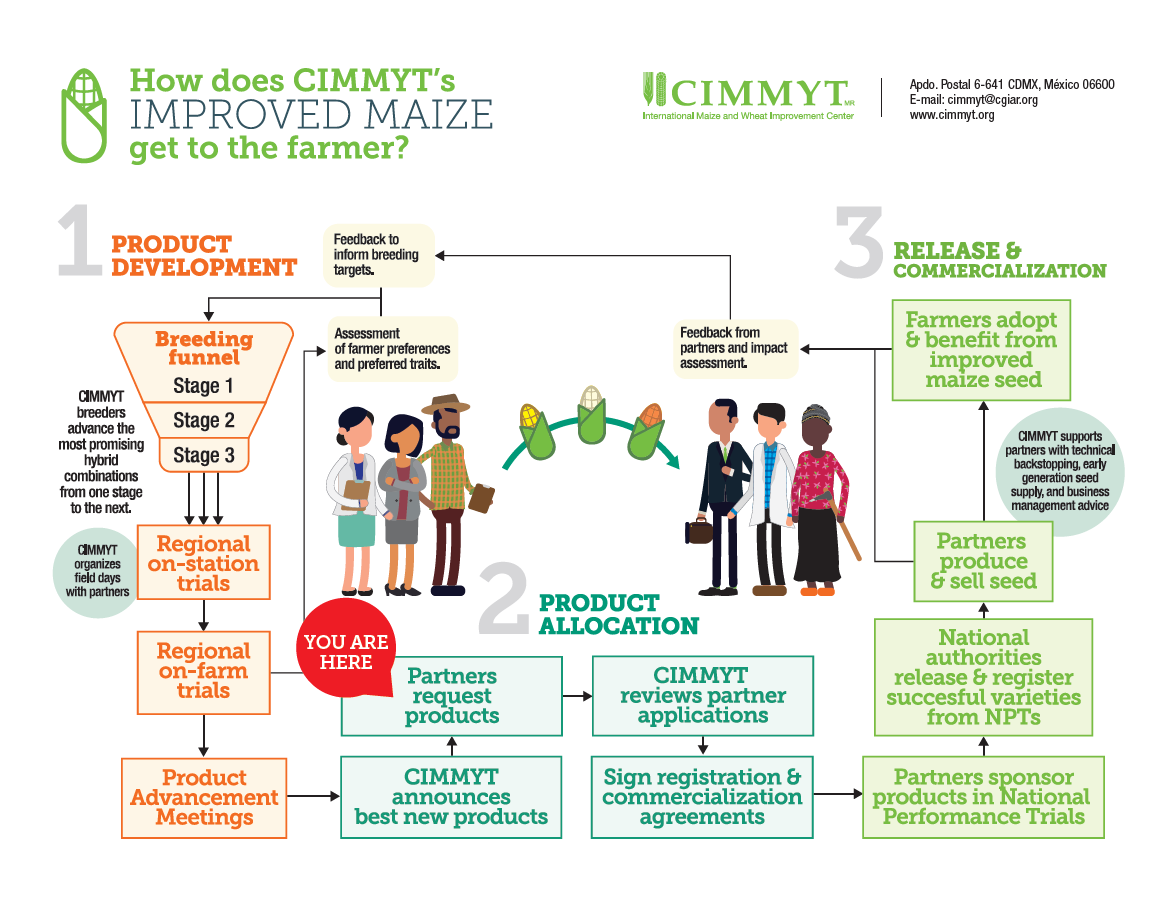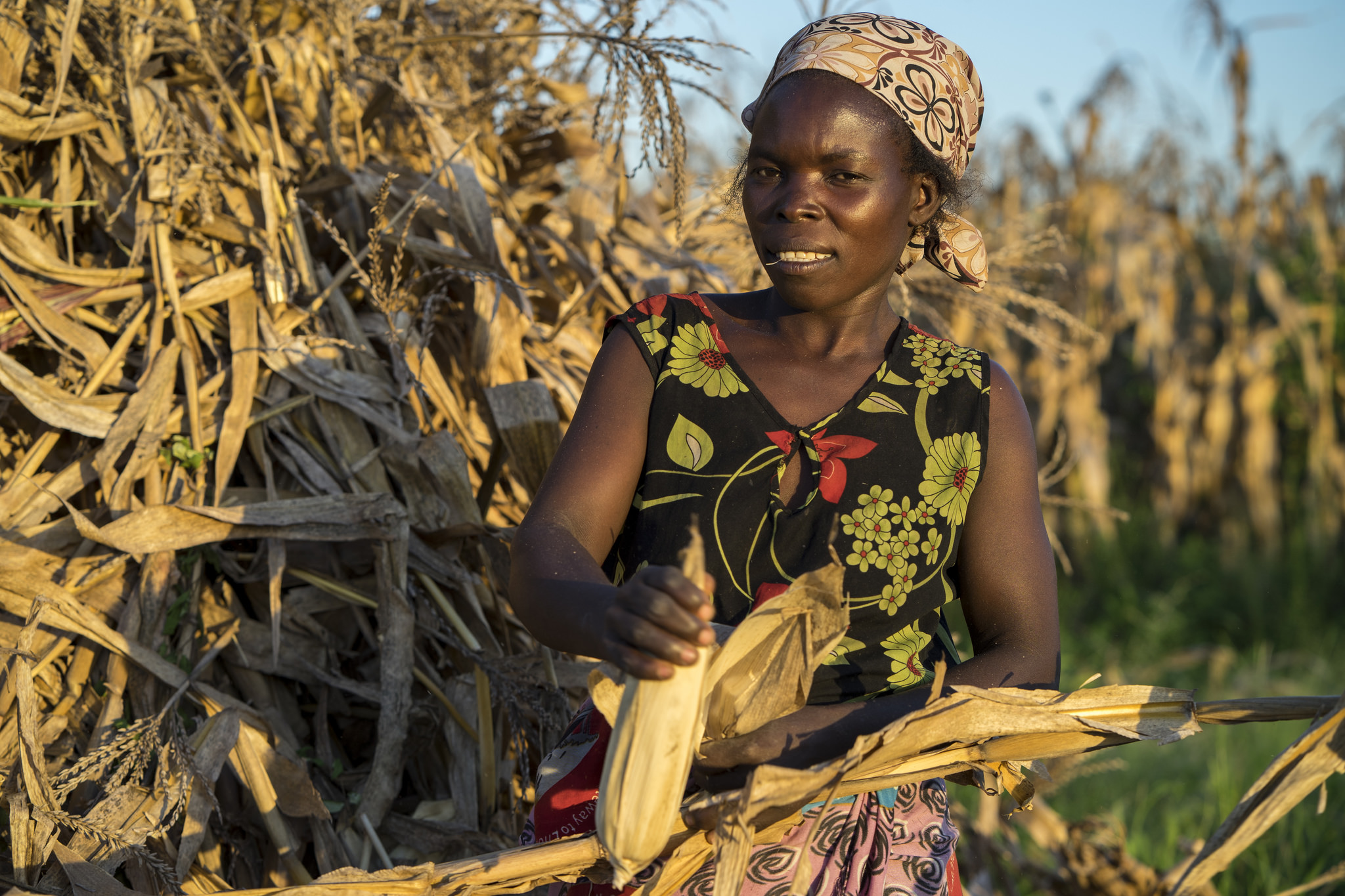
NAIROBI, Kenya (CIMMYT) — To mitigate the impact of the current drought affecting millions of farmers living in Kenya and other areas of eastern and southern Africa, agriculture experts from the International Maize and Wheat Improvement Center (CIMMYT) call for intensively scaling up climate-resilient seeds and climate-smart innovations, including drought-tolerant seeds and soil and water conservation practices.
The U.S. National Weather Service’s Climate Prediction Center has just warned that abnormally dry conditions are affecting Kenya and other areas of eastern and southern Africa. This year’s El Niño, the second in a period of three years, has led to large pockets of drought across eastern and southern Africa, whose economies still rely heavily on rainfed smallholder farming. These recurrent climate shocks impede growth prospects in the region, as the World Bank recently announced.
In Kenya, farmers are eager to plant their maize seeds for the next cropping season. However, mid-April is already here, and farmers are still waiting for the long rains, which usually arrive by mid-March. The very late onset of the rainy season could lead to a poor cropping season and significantly reduced maize yields for farmers.
To avoid this, Stephen Mugo, CIMMYT’s regional representative for Africa, recommends that farmers shift to planting stress-resilient varieties, like early maturing maize varieties that just need 90 to 95 days to mature, instead of over four months for late maturing varieties. Seeds of such early maturing varieties are available from seed companies and agrodealers operating in maize growing areas.
“If more small farmers in Africa’s drought-prone regions grow drought-tolerant varieties of maize and other staple crops, the farming communities will be better prepared for prolonged dry spells and inadequate rainfall,” said Mugo.
Crop diversification and more sustainable soil and water conservation practices are also recommended to improve soil fertility and structure and avoid soil compaction. When the rains finally come, run-off will be less, and soils will have more capacity to retain moisture.
“Our research shows that conservation agriculture, combined with a package of good agronomic practices, offers several benefits that contribute to yield increases of up to 38 percent,” Mugo said.
To ensure large-scale adoption of sustainable and climate-resilient technologies and practices, farmers should have access to drought-tolerant seeds, as well as information and incentives to shift to climate-smart agricultural practices.
CIMMYT is engaged in many ways to help facilitate this agricultural transformation. The institute works with the African seed sector and national partners to develop and deploy stress resilient maize and wheat varieties through initiatives like Stress Tolerant Maize for Africa and the Wheat rust resistant seed scaling in Ethiopia.
Because late planting may expose maize crops to stronger attacks of pests like the fall armyworm, the research-for-development efforts initiated by the FAW R4D consortium against this invasive pest should be sustained.
More information about CIMMYT’s research on drought-tolerant seed and conservation agriculture can be found on the website of the Sustainable Intensification of Maize Legumes Systems in Eastern and Southern Africa (SIMLESA) project.
For more information or for media interviews, please contact
Jerome Bossuet, Communications Officer, CIMMYT.
J.Bossuet@cgiar.org
ABOUT CIMMYT
The International Maize and Wheat Improvement Center (CIMMYT) is the global leader in publicly funded maize and wheat research and related farming systems. Headquartered near Mexico City, CIMMYT works with hundreds of partners throughout the developing world to sustainably increase the productivity of maize and wheat cropping systems, thus improving global food security and reducing poverty. CIMMYT is a member of CGIAR and leads the CGIAR Research Programs on Maize and Wheat, and the Excellence in Breeding Platform. The center receives support from national governments, foundations, development banks and other public and private agencies.

 Nutrition, health and food security
Nutrition, health and food security 